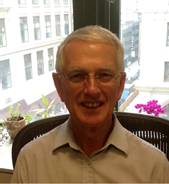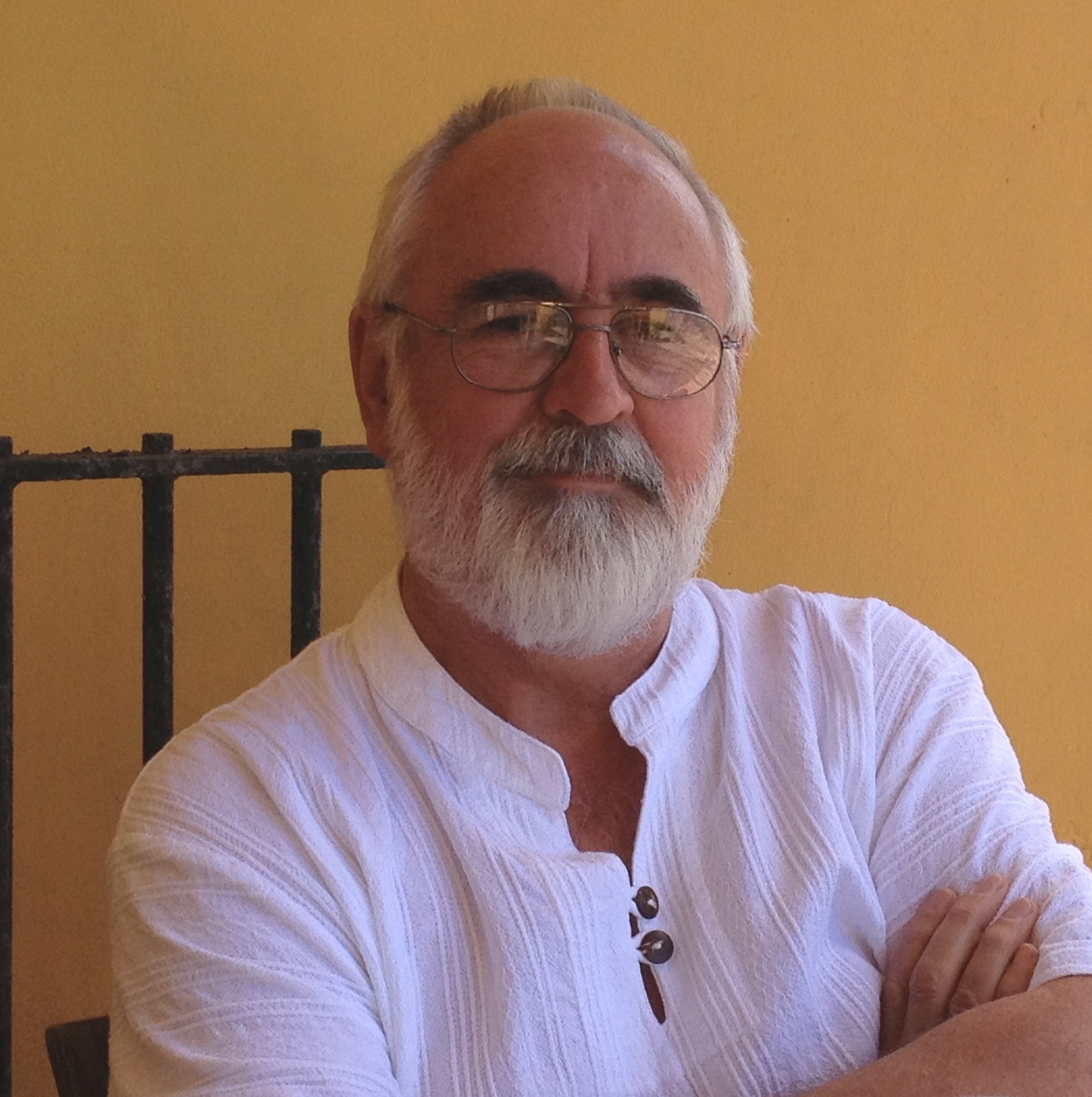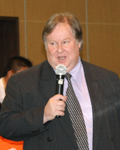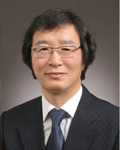| |
|
|
|
|
| |
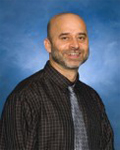
Abstract |
|
 Ravinder Koul is an associate professor of science education at The Pennsylvania State University, USA. He is three-time recipient of Fulbright Senior Specialist Award by the United States Department of State Bureau of Educational and Cultural Affairs. Dr. Koul helped to develop and has coordinated Instructional Leadership, Science Education, and Language and Literacy programs for graduate students at The Pennsylvania State University, Great Valley Graduate Center for Professional Studies, Malvern, Pennsylvania. His prior research on instructional technology and science pedagogy includes program evaluation with the RuralNet Project in West Virginia examining the effectiveness of specific professional development activities for science and math in-service teachers in the integration of the Internet into instruction. His research with in-service science teachers in southeastern Pennsylvania has investigated teacher competencies in the effective use of concept maps and essays as assessment tools. In the area of motivation and academic behavior, his research has examined motivational beliefs and attitudes toward school science, English language learning, and plagiarism among high school and college students. He is currently conducting international research in STEM Education (Science Technology, Engineering, and Math Education) on the application of motivational goal theory and identity theory perspectives on gender differentiation patterns and classroom learning environments in schools and colleges. He has published more than thirty research articles in peer-reviewed journals, which include Studies in Science Education, Science & Education, British Journal of Educational Psychology, Learning and Individual Differences, and International Journal of Educational Research. He teaches courses in science education, educational research and curriculum development. Ravinder Koul is an associate professor of science education at The Pennsylvania State University, USA. He is three-time recipient of Fulbright Senior Specialist Award by the United States Department of State Bureau of Educational and Cultural Affairs. Dr. Koul helped to develop and has coordinated Instructional Leadership, Science Education, and Language and Literacy programs for graduate students at The Pennsylvania State University, Great Valley Graduate Center for Professional Studies, Malvern, Pennsylvania. His prior research on instructional technology and science pedagogy includes program evaluation with the RuralNet Project in West Virginia examining the effectiveness of specific professional development activities for science and math in-service teachers in the integration of the Internet into instruction. His research with in-service science teachers in southeastern Pennsylvania has investigated teacher competencies in the effective use of concept maps and essays as assessment tools. In the area of motivation and academic behavior, his research has examined motivational beliefs and attitudes toward school science, English language learning, and plagiarism among high school and college students. He is currently conducting international research in STEM Education (Science Technology, Engineering, and Math Education) on the application of motivational goal theory and identity theory perspectives on gender differentiation patterns and classroom learning environments in schools and colleges. He has published more than thirty research articles in peer-reviewed journals, which include Studies in Science Education, Science & Education, British Journal of Educational Psychology, Learning and Individual Differences, and International Journal of Educational Research. He teaches courses in science education, educational research and curriculum development.
|
|
| |
|
|
|
|
| |
|
|
|
|
| |
|
|
 John Williams is the Head of the School of Curriculum and Pedagogy, and Director of the Technology, Environmental, Mathematics and Science Education Research Centre at the University of Waikato in New Zealand, where he teaches and supervises research students. Apart from New Zealand, he has worked and studied in a number of African and Indian Ocean countries and in Australia and the United States. He directed the nationally funded Investigation into the Status of Technology Education in Australian Schools. His current research interests include mentoring beginning teachers, PCK and electronic assessment of performance. He regularly presents at international and national conferences, consults on Technology Education in a number of countries, and is a longstanding member of eight professional associations. He is the editor of the Australasian Journal of Technology Education, advisory editor of the International Journal of Technology and Design Education, series editor of the Springer Contemporary Issues in Technology Education and is on the editorial board of five other professional journals. He has authored or contributed to over 220 publications, and in 2011 he was elected to the International Technology and Engineering Education Association’s Academy of Fellows for prominence in the profession. John Williams is the Head of the School of Curriculum and Pedagogy, and Director of the Technology, Environmental, Mathematics and Science Education Research Centre at the University of Waikato in New Zealand, where he teaches and supervises research students. Apart from New Zealand, he has worked and studied in a number of African and Indian Ocean countries and in Australia and the United States. He directed the nationally funded Investigation into the Status of Technology Education in Australian Schools. His current research interests include mentoring beginning teachers, PCK and electronic assessment of performance. He regularly presents at international and national conferences, consults on Technology Education in a number of countries, and is a longstanding member of eight professional associations. He is the editor of the Australasian Journal of Technology Education, advisory editor of the International Journal of Technology and Design Education, series editor of the Springer Contemporary Issues in Technology Education and is on the editorial board of five other professional journals. He has authored or contributed to over 220 publications, and in 2011 he was elected to the International Technology and Engineering Education Association’s Academy of Fellows for prominence in the profession. |
|
|
|
| |
|
|
|
|
| |
|
|
|
|
| |
|
|
 Mark Windale is a Principal Lecturer in Science Education at the Centre for Science Education, Sheffield Hallam University. Before taking up his post at the university 19 years ago he was a biology and science teacher in 5 secondary schools, holding posts of increasing management responsibility, culminating in a senior management post; and he was a lecturer in education at the University of Sheffield for two years. Mark is an expert in Inquiry-based, Problem-based and Active Teaching and Learning. He has been responsible for running national continuing professional development (CPD) and curriculum development projects in the UK, South and South East Asia, the Middle East, and former Soviet Union countries, to support pedagogical change, the move towards student-centred teaching and learning, inquiry-based teaching and learning, and the teaching of science through the medium of English. He has been involved in more than 37 national and international CPD, curriculum development and research projects focussing on the development of active teaching and learning; problem solving and thinking skills; personal capabilities and key skills; scientific investigation and enquiry; STEM education; the use of ICT in teaching and learning; 'How Science Works'; leadership; the development of Science Teacher and Leadership standards; and the retention of teachers as a project director, writer, CPD provider, and researcher. Mark is co-leading three very large national projects in South East Asia, these include the Inspiring Science project in Thailand in partnership with OBEC, the British Council, and BG Thailand; the HEBAT Sains project in Malaysia in partnership with the British Council and Ministry of Education, Malaysia; and the IBSE Brunei project in partnership with the Ministry of Education, Brunei. Mark Windale is a Principal Lecturer in Science Education at the Centre for Science Education, Sheffield Hallam University. Before taking up his post at the university 19 years ago he was a biology and science teacher in 5 secondary schools, holding posts of increasing management responsibility, culminating in a senior management post; and he was a lecturer in education at the University of Sheffield for two years. Mark is an expert in Inquiry-based, Problem-based and Active Teaching and Learning. He has been responsible for running national continuing professional development (CPD) and curriculum development projects in the UK, South and South East Asia, the Middle East, and former Soviet Union countries, to support pedagogical change, the move towards student-centred teaching and learning, inquiry-based teaching and learning, and the teaching of science through the medium of English. He has been involved in more than 37 national and international CPD, curriculum development and research projects focussing on the development of active teaching and learning; problem solving and thinking skills; personal capabilities and key skills; scientific investigation and enquiry; STEM education; the use of ICT in teaching and learning; 'How Science Works'; leadership; the development of Science Teacher and Leadership standards; and the retention of teachers as a project director, writer, CPD provider, and researcher. Mark is co-leading three very large national projects in South East Asia, these include the Inspiring Science project in Thailand in partnership with OBEC, the British Council, and BG Thailand; the HEBAT Sains project in Malaysia in partnership with the British Council and Ministry of Education, Malaysia; and the IBSE Brunei project in partnership with the Ministry of Education, Brunei.
|
|
| |
|
|
|
|
| |
|
|
|
|
| |
|
|
 Chan-Jong KIM is Professor of Earth Science Education and Associate Dean of College of Education, Seoul National University. He had served as Chairperson of International Geoscience Education Organization during 2006-2010. He also served as Chairperson of Advisory Committee of International Earth Science Olympiad during 2004-2010. He has a wide range of research interests in science learning in informal settings and school science classrooms. His recent work explores visitors’ science learning in science centers and natural history museums with sociocultural perspectives and understanding the process of co-construction of scientific models in East Asian science classrooms. Chan-Jong KIM is Professor of Earth Science Education and Associate Dean of College of Education, Seoul National University. He had served as Chairperson of International Geoscience Education Organization during 2006-2010. He also served as Chairperson of Advisory Committee of International Earth Science Olympiad during 2004-2010. He has a wide range of research interests in science learning in informal settings and school science classrooms. His recent work explores visitors’ science learning in science centers and natural history museums with sociocultural perspectives and understanding the process of co-construction of scientific models in East Asian science classrooms.
|
|
| |
|
|
|
|
| |
|
|
|
|
| |
|
|
 Chatree Faikhamta is an Assistant Professor at Faculty of Education, Kasetsart University, Thailand. Before completing his Ph.D. in science education, Professor Faikhamta received a Bachelor of Science in chemistry and graduate diploma in teaching chemistry. He was a visiting scholar at Waikato University, New Zealand in 2005 and University of British Columbia, Canada in 2011. He has taught a full range of undergraduate and graduate courses in science education such as chemistry methods course, research design in science education, science teacher professional development, etc. His research areas focus on pedagogical content knowledge (PCK), action research, and teaching chemistry. He is an author of international book chapters and published more than 30 articles in professional refereed journals. He has been a reviewer of national and international journals such as Research in Science Education, Asia-Pacific Journal of Education. Chatree Faikhamta is an Assistant Professor at Faculty of Education, Kasetsart University, Thailand. Before completing his Ph.D. in science education, Professor Faikhamta received a Bachelor of Science in chemistry and graduate diploma in teaching chemistry. He was a visiting scholar at Waikato University, New Zealand in 2005 and University of British Columbia, Canada in 2011. He has taught a full range of undergraduate and graduate courses in science education such as chemistry methods course, research design in science education, science teacher professional development, etc. His research areas focus on pedagogical content knowledge (PCK), action research, and teaching chemistry. He is an author of international book chapters and published more than 30 articles in professional refereed journals. He has been a reviewer of national and international journals such as Research in Science Education, Asia-Pacific Journal of Education.
|
|
| |
|
|
|
|
| |

Abstract |
|
LUO Xingkai is a professor in the Faculty of Physics & Technology and director in the Research Institute of Science Education at Guangxi Normal University in China where he has worked for pre-service and in-service science/physics teacher education since 1988. His research interests include scientific inquiry and promoting inquiry-based science learning by improving assessment and teacher education, developing innovative learning resources, especially thought-provoking hands-on experiments. He is currently leading his team working with 40 senior high schools trying to bring inquiry-based learning into reality. Prof Luo served as a member of ICPE (the International Commission on Physics Education) from 2002 to 2008 and he is currently the vice standing president of the National Association for Science Education in China and the Education Committee Member of the Chinese Physics Society. He received many recognitions including the “National Outstanding University Teacher Award” by China MOE in 2009. |
|
| |
|
|
|
|
| |
|
|
|
|













